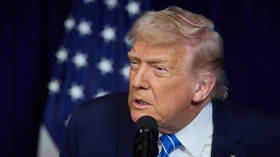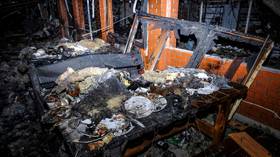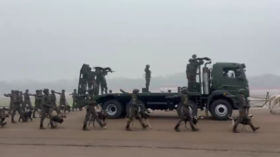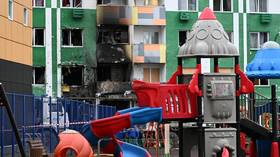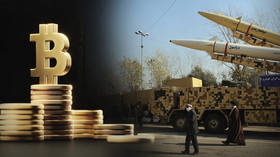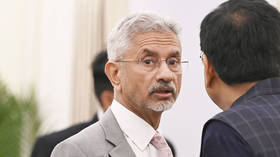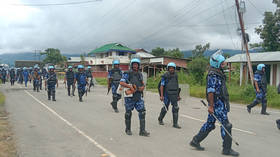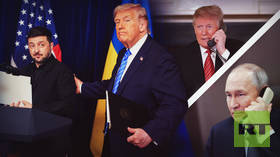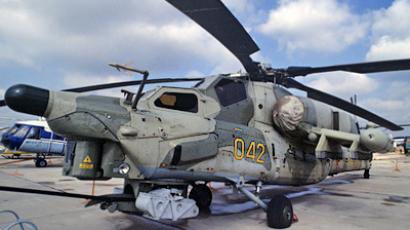Major refit: Arming the army
The collapse of the Soviet Union and its daunting military machine spelled the beginning of a process of decay for Russia's armed forces. Now, major reforms are underway to put the military back on track.
Russia has revealed details of ambitious plans to spend over US $600 billion on upgrading its army over the next 10 years.And there's a new man in charge as well – Russia's former envoy to NATO, the formidable Dmitry Rogozin, will now put his valuable experience to good use as he spearheads a major revamp of the country's military.RT's Tom Barton has been to see for himself why changes are needed to Russia’s military forces, and opened his report with a question which haunts the country’s top brass: can Russia’s armed forces still truly be called the pride of the nation? “The Russian armed forces certainly are falling behind and have fallen behind some of their larger rivals,” believes Matthew Clements, Eurasia Security analyst.New equipment is a priority. There is also a dire need for reforms in organization, recruitment, training, pay and military doctrine.The government has promised $640 billion over the next 10 years to buy new weapons. However, Russian arms manufacturers are no longer what they used to be. “Our army now is in need of contemporary, modern equipment, and if the Russian defense industry can’t yet provide us with what we need, we’ll buy it abroad,” stated First Deputy Minister of Defense, Aleksandr Sukhorukov. New purchases include the land assault ship, the Mistral, bought from France; lorries from Italy, and flying drones from Israel.Drones have proved a particular problem. The defense ministry has been dismayed by the performance of a Russian company tasked with designing and building them. “I asked them what was their problem and what prevented them from producing good vehicles,” recalls Aleksandr Sukhorukov. “The enterprise’s bosses found plenty of excuses, such as the absence of engines, gliders, etc. But I know how much money they received and I saw the rubbish they produced,” the First Deputy Minister complains. However, not all new Russian-made weapons are falling below standard.The SU-34 fighter bomber is widely considered an exceptional aircraft.But few have been delivered so far, and the older models they were to replace are starting to fail.“Although Russian designers come up with some excellent hardware, for instance, in terms of fighter and combat aircraft, sometimes the industry has trouble in maintaining these at a high level and actually producing them in the kinds of numbers that the armed forces need,” Matthew Clements believes. And the reforms still have angry opponents too both in and outside the armed forces. Many of them argue that the re-armament is going just fine and that buying foreign weapons undermines Russia’s military independence. “We are becoming dependent on foreign suppliers of spare parts for military equipment, on foreign military personnel training, on foreign supplies of specific fuels and lubricants and other substances needed for the new equipment,” Konstantin Sivkov, Doctor of Military Sciences, explained to RT.“Nonsense,” say other observers, citing the fact that in 2008, Russian forces pushed the Georgian army out of South Ossetia in just five days. But experts were dismayed at how outdated and clumsy the Russian army looked when faced with real opposition.It reinforced the need for serious change.The money being thrown at the problem is vast, but regiments of roubles on their own will not be enough. Most at the defense ministry now know that before the armed forces are ready for modern conflict, a long and very demanding war for reform must be won, both in the corridors of government and in Russia’s military-industrial complex.


